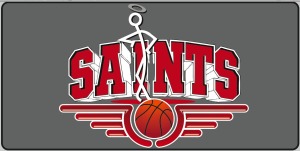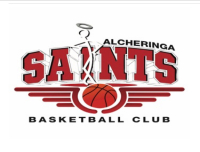COACHING PHILOSOPHIES

CLUB COACHING EXPECTATIONS
“The goal of every Alcheringa Basketball Club coach should be to develop a group of players, whose play proves that they believe that the star of the team is the team.”
The Alcheringa Basketball Club plays in the Mildura Basketball Assoc within country Victoria and has junior representative players participating in the Basketball Victoria Country (BVC) Junior Championships and enters teams in the Vic Club Championships.
Player Development Program Club
1. A commitment to ensure local boys and girls always enjoy the experience of playing Basketball in a safe environment.
2. Skilled and respected basketball coaches able to teach and deliver player Improvement and team Excellence;
3. Tenacious players who execute the fundamental skills of basketball, unselfishly Assist their team and are Mindful of being composed, coachable and good sports.
4. A healthy junior basketball program with players from all surrounding regions in all age-gender groups; and ethinicity.
3. Purpose – The purpose of the Alcheringa Basketball Clubs Player Development Program is to set the clubs expectations and directions for the effective development of its junior players and coaches, in alignment with the clubs vision.
Player Development Goals;
Coaching Philosophies;
Player Development Programs;
T.E.A.M. Values;
Team Rules;
Performance Player Pathway;
Alcheringa SAINTS Playing Principles and Structures;
Fundamental Skills for Alcheringa Club Basketballers.
Training Drills for Basketball Skills.
Goals – Alcheringa Player Development Programe (PDP)
To devise and implement a Player Development Programme that always aims to:
Teach young kids and U10 players the fundamental skills of basketball;
Develop team-oriented U12 and U14 players that are coachable, well-drilled and fundamentally-skilled basketballers; and
Develop U16, U18 and U18 players that are coachable, athletic, fundamentally-skilled, competitive, team-focused and of good character.
To have both senior men’s and senior women’s SAINTS teams successfully competing, and commendably representing the club, in the MBA.
Assist in growing the MBA domestic competitions by helping all registered players to improve.
Encourage and develop talented SAINTS domestic players with aspirations to achieve representative honours in a MBA HEAT basketball team.
Ensure high levels of participation of players and coaches in Skills Days Academy programs.
To develop the accreditation credentials, experience and number of quality SAINTS Basketball Coaches and ensure they are well-educated in BV-aligned basketball skills, drills and team structures.
To provide quality player and coach development programs to ensure all Club basketballers have an opportunity to reach their full potential.
To have competitive, male and female, junior representative club teams in the highest divisions of the MBA.
Programs - Club Player Development
Alcheringa Basketball Club player development programs will include the following:
Program Name To Targeted Players (Age Indicative Academy)
Development Stage
Coach Development
MINIBALL Domestic Club and MBA Feeder Program
Alcheringa Basketball Club Coaching Philosophies
Three (3) Coaching Philosophies underpin player development at the Alcheringa Basketball Club:
1. Team Improvement.
2. Team Enjoyment.
3. Team Excellence.
Team Improvement - “Let’s See How Good We Can Get”.
Every coach should create energy and motivation in every player in the team to continue improving. Coach focus should be on the effort needed to be the best that the team they can be, and not comparing itself to the opposition or grading itself by the scoreboard alone.
Coaches should focus their players on producing a ‘winning effort’ rather than simply winning itself. A winning effort is about work ethic and competing as hard as you can in games, and equally in training, every week. When this type of improvement thinking is practised by coaches and their players, out-scoring the opponent will become a byproduct of the pursuit of basketball excellence.
Team Enjoyment - “Let’s Have Fun By Competing Hard”.
Coaches emphasise “real fun” is achieved by competing as hard as you can.
The most enjoyment and satisfaction from basketball occurs when all players on the team are giving their all against their opponent.
A little mucking around and joking from time-to-time is tolerated of course, but the enjoyment is not at the same level as the fun obtained from each player competing hard for their team and their own improvement.
Team Excellence - “The Star of the Team is the Team.”
coaches must teach ‘team before the individual’. A cooperative, excellent team spirit must be cultivated and fostered by every SAINTS coach, both on and off the court.
coaches should aim for their team to arrive at the notion of a singleness of purpose and dedication to team excellence and team-set goals. Players must commit to lead by example by practising the right skills to be the best player they can be, and by always giving their best for their teammates - by keeping their heads-up and staying focused on their team role and team expected efforts.
coaches must include themselves in the pursuit of team excellence - by regularly improving their own basketball skills and knowledge, as well as their communication skills for interacting with players, opponents, referees and officials.
No Alcheringa Club Coach or Committee Member is to approach any junior player from another MBA junior club team with a view to encourage ("poach") that player to the Alcheringa Club. Any player wishing to clear from another club must first speak to the club that they are registered. it will be a commitee decision to determine the available positions in the respective age group, reasons for seeking a clearance and overall impact on the MBA competition, before any acceptance of a player application to clear to the Alcheringa Basketball Club .All clearences at junior level will be at the decreation by the MBA
Alcheringa Basketball Club T.E.A.M. Values
The four (4) Most Valued Attributes of a Alcheringa Basketball Player are:
TENACIOUS: We compete hard and never give up.
EXECUTER: We show true skill, great footwork and play our team role.
ASSISTER: We have court vision, pass well and are stingy defenders.
MINDFUL: We are coachable, composed, respectful, fair and good sports.
Team Selection Criteria and Most Valuable Player (MVP) and Coaches Award Criteria are to be always founded on the T.E.A.M Values.
Alcheringa Basketball Club players work hard to practise and adopt these TEAM values, they are guaranteed to help their team to perform at its best.
And whether their team win or loses, players who work hard to practise and adopt the club TEAM values will:
Win the respect of team-mates and coaches;
Represent the club with distinction, and
Create a great deal of pride for their parents and supporters.
Most importantly, club players who come to understand that they are part of something more important and bigger than their individual considerations - who become selfless in their basketball thinking - are guaranteed to achieve a high level of enjoyment and satisfaction from their experience of playing basketball.
Team Rules
TRAINING: teams are taught to ‘Train as you Play, Play as you Train’ to develop the right habits in games. Players must be willing to do what their coach asks, for their own and their team’s benefit, and lead by example at practice sessions.
WARM-UP: Players must arrive at games early, switched-on and ready to play. This is critical to set the tone for the team’s attitude and effort on court. players must execute warm up drills with precision and energy so that their team unit is fully focused, vocal and clicked-into-place right from the centre tap.
GAMES: And the following Team Rules apply to every Alcheringa Basketball team during games and MUST be enforced by coaches and followed by every player, no exceptions:
“NO CRITICISM”. Alcheringa club Players Never criticises another teammate. Selfishness, in-fighting, ego, envy and criticism will kill team-spirit, will be reflected oncourt and should not be tolerated by club coaches.
“THANK THE PASS”. Alcheringa club Players ALWAYS acknowledges a teammate’s role in scoring. players must be willing to sacrifice personal glory for the team. Acknowledging a team-mate’s role in a score is critical for building SAINTS team camaraderie and spirit.
“PLAY YOUR ROLE”. Alcheringa Club Players ALWAYS plays their role in the team. If a club player is unwilling to play their coach-assigned role for the team, they will not play as much time as players who play their coach-given role. In particular, nothing justifies a player with the tools to be highly successful on offence playing defence poorly or with anything less than 100% effort.
“REACT SMART - KEEP YOUR HEAD”. A SAINTS club Players ALWAYS chooses to remain composed and disciplined. Club players must have the mental discipline to choose to react positively to any challenging situation. No matter how frustrated, riled or unjustly treated they feel they may be, every player is expected to ‘keep their head’ by fully focusing on their very next required effort, their very next role for the team and on the team’s need for them to quickly ‘move on’ to the next on-court challenge.
“NEVER TAUNT”. A SAINTS Player NEVER taunts an opponent. Club players must know the right balance between being vocal and supportive of their team-mates, while showing good sportsmanship, due respect to their opponents and the mental discipline to rise above any fracas with the opposition.
Alcheringa Basketball Club Player Pathway
Talented SAINTS junior basketball players will be actively encouraged by the club to maximise their basketball potential via the MBA and Basketball Victoria Player Pathway.
Alcheringa Basketball Club Team Defence - Principles and Structures
Defensive Principles “Nothing Easy”: SAINTS teams will be known for having a miserly, stingy defensive attitude and for making the opposition work hard for every scoring opportunity.
Constant basket protection and a commitment to disrupt the opposition is a must.
Opponents must be allowed to move wherever they want to on the floor. No easy cuts. No easy drives. No easy shots. No easy passes. No easy rebounds.
Opponents may score but if they make a tough basket despite the best defensive efforts of the team, Wallan players will keep their heads, stay positive and move on.
“Stance and Hands”: SAINTS teams must be able to defend their player when they have the ball. To do this, correct athletic stance with proper footwork (with trace & dig hand pressure) is a non-negotiable for any player on the court - every time, all the time. Teams will therefore play defence without fouling, except when game circumstances require it (in accordance with coach instructions).
A SAINTS player must also be able to maintain appropriate defensive stances throughout the opponent’s possession, and be able to go from one stance and one position on the floor to the correct stance and hands position on the flight of the ball, with explosive quickness.
A player should understand and practise the following principles for defensive play:
• Containment and Pressure (stances);
• Jump-to-the Ball;
• Contest dribble and pass penetration;
• Low post defence (ie. full front = toes out; side front = toes in);
• Denial (ie. one pass away – prevent reversal); • Help (ie. split line / help-side positioning); • Rotation;
• Basket Protection;
• Boxing Out; and
• Conversion to Offence (ie. transition offence)
“Box-Out”: All players on the court must be willing and able to block-out their opponents and rebound (at both ends). The ability to Box-Out is an essential requirement of all players. Players must be skilled in taking up space, being strong, staying low, absorbing contact and pushing back. And they must be desperate to grab the ball.
“Talk and Point”: SAINTS teams will be known for having a vocal, cooperative defensive mindset. There must be concise defensive communication from team members at all times, clearly-directed to particular team-mates (so that they know it is directed at them).
Defensive Structures
The primary stopping strategy of any SAINTS Basketball team is Disruptive, Full-Court Pressure Man-to-Man defence, underpinned by defensive principles of ball-pressure, dribble penetration containment, help-and-recover and right positioning relative to the opponent and the ball.
Man to Man defence principles offer the best mechanism to pressure the opposition and will be the principal, preferred, ‘go-to’ defensive structure of all club teams. Zone defence principles offer the best mechanism for basket protection.
Teams will therefore seek to combine M2M and Zone defence concepts with the primary aim of being disruptive to the opposition. Regardless, a Zone Defence will only be played by teams on the basis as outlined below:
Where the MBA has a No Zone Policy for its domestic and younger age groups, meaning:
U10, U12, and 14 No-Zone Policy is that zone defences at the younger, junior levels can limit the development of individual and team skills.
For example, driving opportunities are limited and players often do not have the muscular strength and coordination to shoot, with good technique, from the perimeter, or to throw ‘skip’ passes. This reduces the need and player development opportunities for defensive skills such as ‘closing out’ and ‘ball-deny-help’ positioning.
Alcheringa Basketball Club Team Offence - Principles and Structures
Offensive Principles
The objective of any offensive structure is to create smart, high-percentage shots.
The pre-requisites for any SAINTS team to be consistently productive are that its players must be:
(i) in good physical condition;
(ii) well drilled in the fundamental skills of basketball;
(iii) unselfish and team-oriented; and
(iv) able to execute as a smooth-working unit.
teams must be skilled at transitioning quickly from defence to offence. Players must be willing and physically conditioned to quickly sprint on every defensive rebound or interception to gain numerical advantage.
offences used should be structured to create proper spacing and balance and include effective plays that take advantage of both man-to-man defence and zone defences.
Highly functional offences that provide both a structure to facilitate team-play whilst also creating opportunities to maximise the talents of all (or specific) individuals on the team will be based on the key principles outlined below:
Proper Spacing:
♣ Proper spacing should be taught to:
(i) facilitate safe passing; and
(ii) to provide operating room for the player with the ball.
Penetration and Passing:
♣ At the heart of any offence should be unselfishness, confidence and constant penetrating movements, from spread and balanced areas of the floor.
♣ teams should use both passing and dribble attack to get smart, highpercentage shots, given that passing moves the basketball faster than dribbling and consequently, allows the offence to stay ahead of the defence.
♣ Quick but unhurried ball movement (by the passer) and player movement (by the receiver) are of the essence.
♣ ‘Assists’ (ie. passes to a team-mate that scores) must always be acknowledged by coaches and team-mates.
Balance on both the Strong and Weak Sides:
♣ offences should be structured to provide quick, strong and mobile weakside action in order to: i. help make strong-side action work - by occupying and stretching strongside defenders; and ii. create immediate weak-side attack, should the ball be reversed or skipped (without the need for ‘re-setting’ the offence).
Flexibility and Timing:
♣ coaches are discouraged from running mechanical offences where players are forced to follow set patterns which tend to be easily defended.
♣ Giving players freedom to break from pattern helps make an offence flexible, unpredictable and effective against a variety of defences. Everyone has a role to play, however, offences should also encourage initiative.
♣ Players should be encouraged to see and take openings or a better opportunity to penetrate, draw a defender and dish, kick or score - other than the original play design. Coaches should provide a system of play and options, and an atmosphere of trial and error and risk-taking during practice sessions.
♣ Individual initiative must also, however, occur within team guidelines for proper spacing, ball movement and to create smart, high percentage shots.
Timing:
♣ Creating a smooth-working unit should be the goal of any offence. This is to be accomplished by players practising hard and regularly playing together so players are familiar with the particular skills, tendencies and preferences of the others within the overall offensive structure.
Equal Opportunity:
♣ offences should operate on a principle of ‘equal-opportunity’ meaning scoring opportunities are created and equally distributed across all players on the team over the course of several games. Any offence that places the basketball only in the hands of its more gifted scorers and freezes out the others is not to be played by any Wallan team.
♣ Such offences become predictable, are limited in their options and are therefore easy to defend. This doesn’t mean that all players should average the same number of points per game. It does mean that every player on the court must be made to feel that they are a contributing member of the offensive attack, even if a player’s contribution is mostly by passing, cutting, stretching the defence (e.g. setting up in corners) or by screening to allow team mates to get good shot opportunities.
Offensive Structures
The primary offensive approach against M2M defence for U10, U12 and U14 teams will be ‘5-out’ motion, but with an emphasis on having the ability to run motion offence principles within a ‘5-Out’, ‘41’ or ‘32’ set-up, depending on the strengths of the team and the defence.
The offensive approaches against a M2M defence for U16, U18 and U20 Wallan teams will be based on a combination of motion offence and dribble-penetration (eg ‘Split and Kick’) set-up structures, and ‘make-the-extra-pass’ (ie. find the open man) principles - with the aim of getting smart, high percentage shots.
The offensive approach of any team against a Zone Defence should aim to get movement behind defenders, quick ball reversal and dribble penetration through the gaps between defenders – again, with the aim of getting smart, high percentage shots.
Any motion or dribble-penetration offences implemented by coaches MUST be in alignment the club Offensive Principles (refer above).
‘Motion’ Offence (for M2M defence);
Fundamental Dribble Drive Offence (for M2M defence)
‘Split and Kick’ Dribble Penetration Offence (for M2M defence)
‘Gaps’ Dribble Penetration Offence (for Zone defence).
Fundamental Skill Requirements of SAINTS Basketballers
“The first objective of every coach should be to ground the players in the automatic execution of the fundamentals of the game. The second objective naturally follows – to integrate fundamentally sound players into a smoothworking unit. These priorities are often, mistakenly, reversed”.
John Wooden (Former UCLA and Most Successful NCAA Coach)
SAINTS basketball players should be fundamentally-sound and “well-drilled”, meaning that their execution of the basics of the game of basketball is correct, quick and unconscious.
In teaching players basketball fundamentals, coaches must therefore be patient and prioritise the practise the quick and proper execution of these fundamentals in training and games, over and above team ‘scoring output’ during games.
Thew Alcheringa Club will focus on players excelling in the following Basketball Fundamentals:
Individual Body Movement and Body Skills
Individual Rebounding, Offensive and Defensive Skills
Team Offensive and Defensive Skills
Fundamental Skills
It is said that drills don’t teach, they only provide a platform for instruction.
It is the proper teaching of the fundamental skill requirements of a SAINTS Basketballer (outlined in this Player Development Programme) that will help players to understand their importance and that will make the difference between poor and excellent individual and team execution and performance. - Plan Training
Communicating with Players – Key Tips for Coaches
Always be Prepared – for Practice (team training plans) and Games (team instructions).
Always Look like a Coach – by wearing the designated Coach Uniform.
Always Be a Leader and Role Model – for your team and staff – on and off the floor.
Always Stay Focused on your Team. Don’t be on your phone or talking with others.
Always Send Effective Messages to your players, by:
o Always Being Positive;
o Stating your message Clearly and Simply;
o Saying it Loudly enough, and then saying it again. Repetition and reinforcement are key;
o Saying it Consistently and with Conviction. Be the Coach. Make the Team Decisions;
o The use of appropriate, non-offensive language.
Always Be Aware of your Non-Verbal Messages:
o Facial Expressions - don’t be afraid to Smile - it’s a great boost for an unsure player:
o Body Language – don’t be slouched over with your head down or shoulders slumped.
Always Be Aware of your Receiving Skills, by:
o Paying Attention and Maintaining Eye Contact with your players;
o Listening Carefully to your players.
Always Remember why you are Coaching, by:
o Reminding yourself it’s about team Improvement, Excellence and Enjoyment;
o Reminding yourself: ‘It’s Not About You’ – it’s about the Players and the club.
SEE COACHES LINK IN THE RESOURCE TAB FOR TRAINING ASSISTANCE









